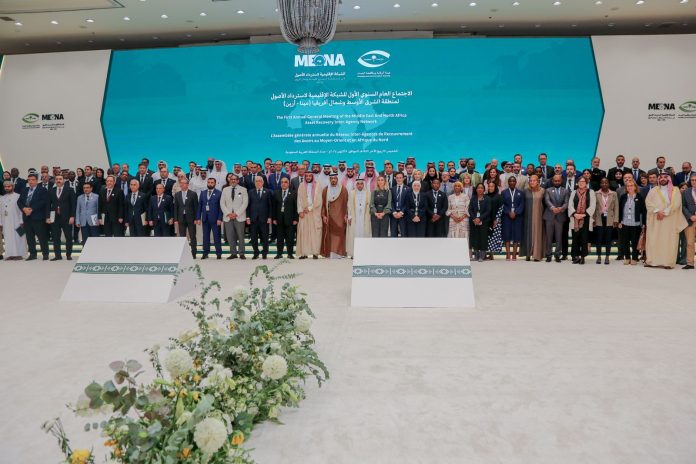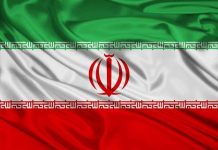JEDDAH: The first annual general meeting of the Middle East and North Africa Asset Recovery Inter-Agency Network (MENA-ARIN) concluded in Jeddah, marking a major milestone in regional cooperation to combat corruption and recover illicit assets.
Hosted by the Kingdom of Saudi Arabia through the Oversight and Anti-Corruption Authority (Nazaha), the two-day meeting brought together representatives from member states of the Middle East and North Africa Financial Action Task Force (MENAFATF), international and regional organizations, and peer asset recovery networks, said a press release received here on Saturday.
At the conclusion of the meeting, Dr Nasser bin Ahmed Abaalkhail, Deputy of Nazaha for International Cooperation, delivered a speech in which he commended the success of the meeting in establishing MENA-ARIN and laying a solid foundation for its future.
He added that this milestone is not merely an important achievement but also a qualitative step that establishes a framework to enhance cooperation, support capacity-building, and consolidate collective commitment to combating corruption and all forms of crime.
Abaalkhail affirmed that MENA–ARIN will remain committed to continuous development and improvement, noting that it operates according to a clear and ambitious roadmap aimed at strengthening asset recovery efforts across the region.
He reiterated that the Kingdom of Saudi Arabia is determined to continue its firm commitment to enhancing these efforts and will persist in playing an active and influential role in supporting the success of MENA–ARIN and its continuous development.
Abaalkhail then read out the recommendations of the Presidency of MENA–ARIN to the member states, including reinforcing political and operational commitment through the activation of contact points, intensifying the exchange of information and requests related to asset recovery to enhance the effectiveness of the network and make it an efficient tool with tangible impact in supporting law enforcement authorities.
The recommendations also included updating and harmonizing national legislations to incorporate effective tools such as confiscation, settlements, and modern measures for tracing and freezing illicit assets, in line with international obligations and standards, thereby facilitating recovery operations across member states.
They further called for strengthening cooperation with regional and international organizations and networks concerned with combating crime and asset recovery, and focusing on building national and regional capacities through specialized training programs targeting practitioners engaged in asset recovery.
The second and final day of the meeting witnessed several panel sessions to discuss various issues related to asset recovery and the enhancement of regional and international cooperation in this field.
The first session was entitled “Strengthening Global Cooperation for Effective Asset Recovery (Challenges, Strategies and Partnerships)”.
The session was moderated by UNDP expert Catherine Marti, with interventions from Adrian Foster, Chief Crown Prosecutor and Head of the Proceeds of Crime Division at the Crown Prosecution Service of the United Kingdom; Ms. Alexandra Fielzein, Head of the Asset Recovery Office at the Ministry of Interior of France; Natalia Kivlenieks, Inspector General at the Asset Recovery Office of the State Police of Latvia; in addition to Ms. Moudi bint Mohammed bin Jumah, Director General of International Relations at Nazaha’s International Cooperation Agency.
During the session, experts highlighted the experiences of countries, best practices, and cooperative strategies aimed at enhancing bilateral and multilateral cooperation, whether between states or within existing regional asset recovery networks.
Speakers emphasized the vital role played by strong partnerships and close coordination in achieving more efficient and effective asset recovery. They also addressed the main challenges facing asset recovery at the national, regional, and international levels, while highlighting ongoing initiatives and innovative strategies to overcome these challenges and strengthen recovery efforts.
The second session reviewed best practices and coordination frameworks among countries to enhance transparency and efficiency in recovering illicit assets.
The session was moderated by Brigitte Strobl-Schau, Chief of the Corruption and Economic Crime Branch at the UNODC, with interventions from Min Jin Cho, Criminal Investigator at the Supreme Prosecutor’s Office of the Republic of Korea; Daniel Llorens, Chief Inspector and Head of the Asset Tracing Office of the National Police of Spain; Christian Sanning, Senior Prosecutor in the Asset Recovery Office at the National Unit for Special Crimes in the Public Prosecutor’s Office of the Kingdom of Denmark; and João dos Santos, Prosecutor at the Public Prosecutor’s Office of the Republic of Portugal.
A third panel discussion with international organizations was entitled “Advancing Asset Recovery: International Standards, Support and Cooperation with MENA-ARIN”.
The session was moderated by Ms Miad Al-Sughair, Director General of International and Regional Agreements at Nazaha’s International Cooperation Agency, with interventions from Badr Al-Banna, Crime Prevention and Criminal Justice Officer representing UNODC and the StAR Initiative; Boni de Moraes Soares, National Advisor for International Affairs in the Office of the Prosecutor General of Brazil and Vice-Chair of the Global Operational Network of Anti-Corruption Law Enforcement Authorities (GlobE); Pier Casanova Moroni, Financial Investigator and Acting Director of the Italian Asset Recovery Office; Iker Lecuona, Director of the International Centre for Asset Recovery at the Basel Institute on Governance; Andrea Tirlia, Europol representative and Secretariat of CARIN; Marten Pressmann, Prosecutor at the European Public Prosecutor’s Office; and Julia Fromholz, Head of the Anti-Corruption Division at the OECD.
Speakers reviewed the globally recognized standards in asset recovery within their ongoing work programs and presented valuable insights on the technical assistance and support available to MENA–ARIN members, aimed at strengthening regional efforts to develop recovery mechanisms and enhance cross-border cooperation.
The second day also included presentations by representatives of CARIN and other ARIN networks, during which speakers showcased prominent achievements and lessons learned in the field of asset recovery and combating financial crimes, highlighting successful strategies, challenges overcome, and best practices that contribute to supporting and reinforcing the efforts of MENA–ARIN.
It is worth noting that the meeting represents a turning point in the course of regional and international efforts to combat corruption, as it marks the official launch of the activities of the new regional network, headquartered in the Kingdom of Saudi Arabia, as its permanent General Secretariat.
This signifies the beginning of a new phase of institutional cooperation and reinforces the Kingdom’s leading role in supporting integrity and building effective international partnerships. –Agencies




